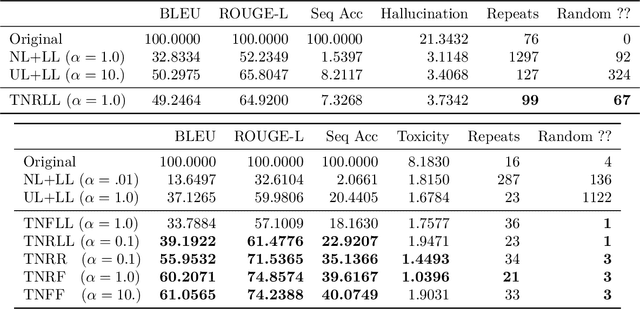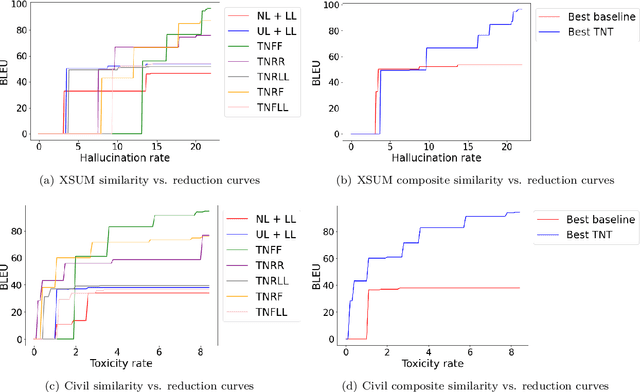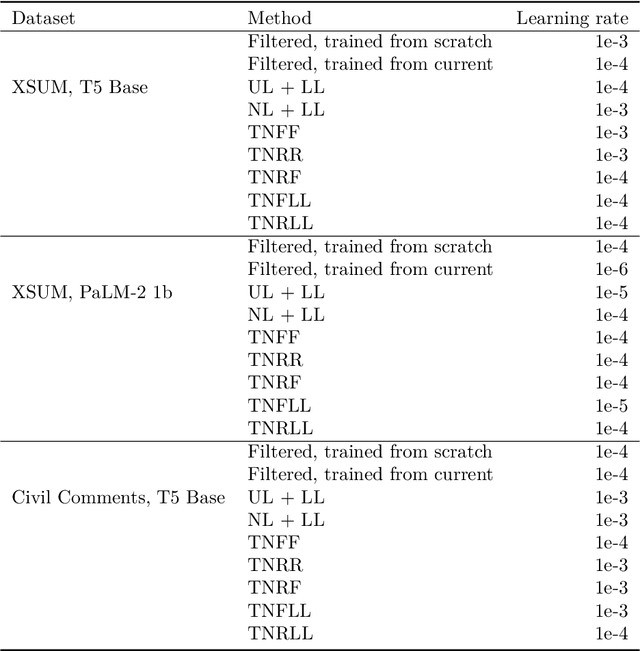Towards Minimal Targeted Updates of Language Models with Targeted Negative Training
Paper and Code
Jun 19, 2024



Generative models of language exhibit impressive capabilities but still place non-negligible probability mass over undesirable outputs. In this work, we address the task of updating a model to avoid unwanted outputs while minimally changing model behavior otherwise, a challenge we refer to as a minimal targeted update. We first formalize the notion of a minimal targeted update and propose a method to achieve such updates using negative examples from a model's generations. Our proposed Targeted Negative Training (TNT) results in updates that keep the new distribution close to the original, unlike existing losses for negative signal which push down probability but do not control what the updated distribution will be. In experiments, we demonstrate that TNT yields a better trade-off between reducing unwanted behavior and maintaining model generation behavior than baselines, paving the way towards a modeling paradigm based on iterative training updates that constrain models from generating undesirable outputs while preserving their impressive capabilities.
 Add to Chrome
Add to Chrome Add to Firefox
Add to Firefox Add to Edge
Add to Edge